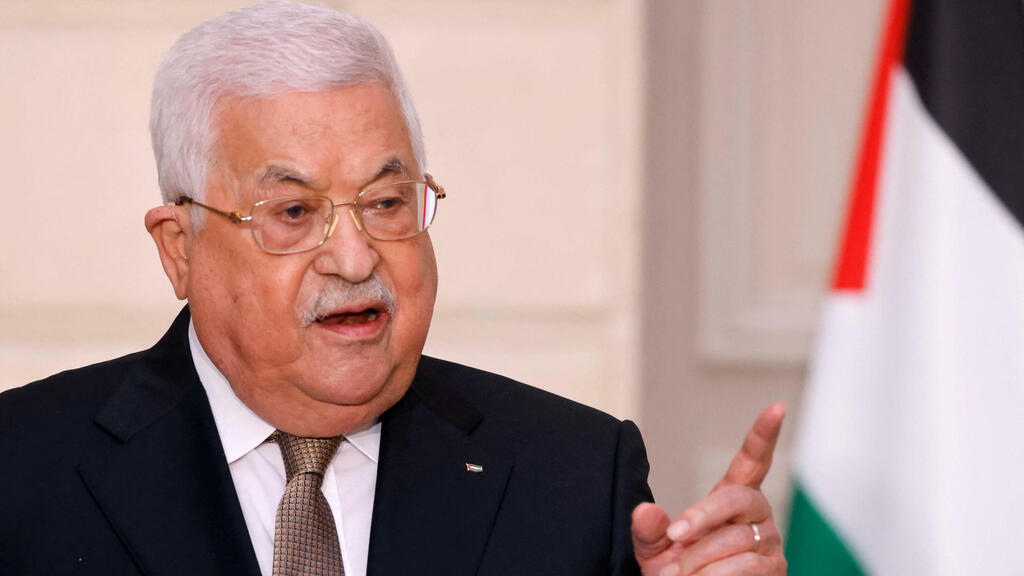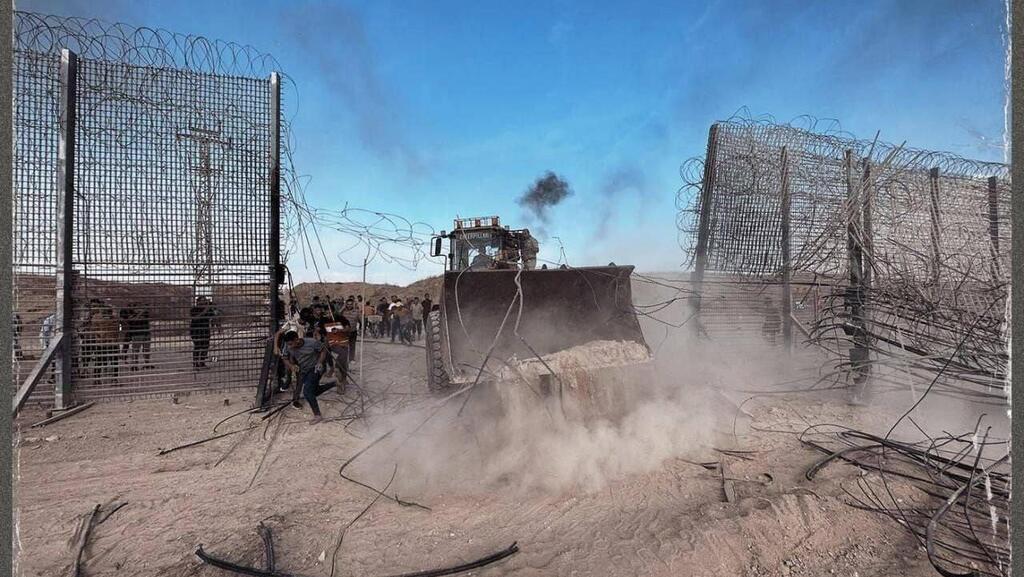Even after all kinds of reservations and qualifications, it is hard to ignore the startling trends reflected in the Palestinian public opinion poll published last week, illuminating the Palestinians’ views on the war in Gaza. While survey results should certainly not be accepted without caution, especially when conducted during wartime and in regions where residents are wary of answering pollsters truthfully, the emerging trends are significant, have been recurring throughout the war, and are similarly reflected on the ground.
The quarterly poll was conducted by the Palestinian Center for Policy and Survey Research (PCPSR) headed by top Palestinian pollster Dr. Khalil Shikaki. The most striking finding for Israelis was also evident in the survey conducted in December, since it reflects “traditional” Palestinian "bipolar behavior." There was overwhelming support for the October 7 attack (71%) as well as total denial that Hamas committed war crimes (91%); Respondents also accused Israel of committing such crimes (94%), and underscored the narrative that the Palestinians were the victims.
The poll further reflects unprecedented support for Hamas (34% compared to 17% support for Fatah), satisfaction with Hamas leader in Gaza Yahya Sinwar (65%), and preference for a Hamas-led regime in the aftermath of the war as compared to the return of the Palestinian Authority to the Gaza Strip, and rather than family clan rule or an administration under Israeli auspices. Moreover, it shows admiration for external parties hostile or harmful to Israel, even if they are unable to help the Palestinians, or are altogether indifferent to their cause (Yemen, Hezbollah, Iran, Russia); Contempt also is shown for those who help the Palestinians, particularly the United States, which reportedly received just 1% of survey respondents’ support.
Domestically, the Palestinians continue to support the election of Marwan Barghouti, Fatah senior leader who has been in prison in Israel since 2002, as their next president across the board (he defeats every other candidate in all scenarios), without considering the complexity of his being in prison or the fact that his name is synonymous with messages of terror that are likely to put the Palestinians all on a path of escalation with Israel.
In addition, the largest number of poll respondents ever favored the ousting of Palestinian Authority President Mahmoud Abbas, with 93% in the West Bank.
2 View gallery


The largest number of poll respondents ever favored the ousting of Palestinian Authority President Mahmoud Abbas, with 93% in the West Bank
(Photo: Reuters)
The findings of this survey should guide anyone who deals with the strategic design of the Palestinian system, particularly the goal of de-radicalization that Netanyahu highlighted in the recently issued document "The Day After." No external party can exert a profound change on the Palestinian outlook, certainly not who they define as their enemies. Such change requires some soul searching and poignant self-criticism, such as was conducted in post-1945 Germany, but this is not currently taking place. The fact that not a single prominent Palestinian politician or intellectual has taken a stand against the October 7 atrocities is striking in this context.
The survey findings also correlate with the often-used term in post-October 7 Israeli discourse, “disillusionment” – a renewed realization that the two communities are at opposite ends of a deep cultural divide, including issues such as ethics, truth and how “others” should be treated. The roots of this conflict are also given new meaning: Most Israelis find the frequently heard arguments about occupation or economic hardship inadequate as explanations for the viciousness exhibited on October 7, fueled by tremendous inbred ideological animosity rather than intelligent resolvable motives.
Israel is therefore required to reach two polar-opposite conclusions: While, at present, there is no room for borderless coexistence with the Palestinians (especially within a binational state solution), it also seems that full Palestinian independence granted to a shattered, leaderless and hostile Palestinian system, would pose an existential threat to the Jewish state. Thus, the post-war Israeli leadership will have to carefully and soberly examine the advancement of risk-averse physical separation, for instance by establishing a Palestinian entity with borders, the gates to which will be controlled by Israel for an unlimited period of time.
- Dr. Michael Milshtein is the director of the Palestinian Studies Forum in Tel Aviv University’s Moshe Dayan Center



